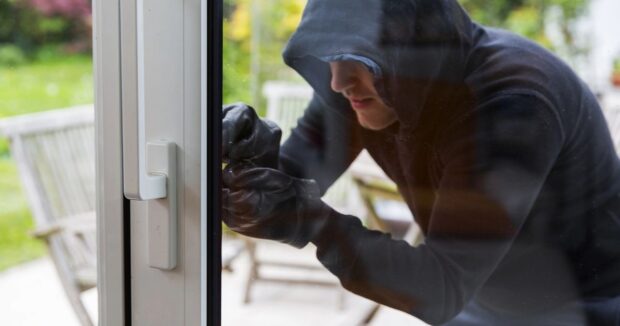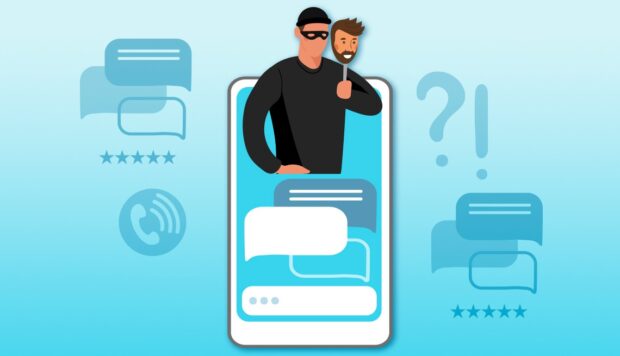If the smartphone doesn’t ultimately spell the doom of humanity, social media could do the trick. Social media has become the catch-all for a variety of online behaviors that often prove detrimental. All sarcasm aside, people need to be careful about their social media activity. All sorts of people use social media, including criminals.
Have you ever used social media to keep track of people without them knowing? Have you ever tried to hunt down old friends by looking for their social media pages? The fact that most social users tend to do such things is evidence that platforms like Facebook and TikTok can be used for all sorts of nefarious activities.
The simplest way to phrase the point of this post is to say that criminals know how to use social media, too. And use it they do. Once you know how they do it, you can take steps to prevent yourself from being victimized by an enterprising criminal who knows his way around social.
Burglars Scope Out Their Targets

Although many burglars put little effort into choosing their targets, there are those who are more circumspect. They scope out potential targets in hopes of carefully making the right selection before getting to work. How do they do it? Burglars have lots of techniques.
According to Vivint, one of the things they do is scour social media in hopes of discovering people who are not home. They look for:
- People ‘checking in’ at restaurants and bars.
- Homeowners posting vacation pics in real-time.
- Workers complaining about their jobs on social media.
- People going live while they walk the dog or ride their bikes.
Virtually any type of social media post that suggests a person is anywhere else but home gives burglars an opportunity to take a closer look. They benefit from the fact that so few people know how to lock down their social media profiles so that only people they trust can see them.
They Look for Things to Steal

Checking on whether a potential victim is home barely scratches the surface of how criminals utilize social media. Another tactic is to use social media posts and videos to find things to steal. Here is just one example: posting shots of everything you found under the Christmas tree.
Maybe you got the latest iPhone everyone has been talking about. Post pictures online and you are telling every burglar who can find your page that you just got one of the most easily street-sold items on the market. Do you really want to do that kind of dangerous self-promotion?
Some criminals are interested in things like small electronics, jewelry, and cash. Others are after big ticket items, like cars. While you are busy posting all about your brand-new car, some criminal on the other side of town might be plotting how he can steal it, chop it up, and sell it for parts.
They Steal Identities
In addition to using social media to commit burglary and home invasion, the U.S. Department of Justice says that criminals use social media to steal identities. They can do this in a variety of different ways.
For starters, a criminal who knows what to look for can glean enough personal information from social media to move forward with an identity theft strategy. Names, photographs, and a general idea of where victims live is enough to get started. From there, a criminal can use other sources to build an identity profile.
Social media can also be utilized as a social engineering tool. What is social engineering? It is the process of manipulating a person into voluntarily surrendering personal information. For example, a criminal who contacts an elderly person claiming to be a family member in need of bail money is practicing social engineering.
Social engineering is made easier through social media because people volunteer so much information criminals can use to manipulate them. It all boils down to the fact that most of us share way too much on our social pages.
Lock Down Those Profiles

The best thing anyone can do to prevent social media from being used against them is to simply not use it. But that is probably impractical in the modern era. So what other things can people do? First and foremost, lock down those profiles.
Nearly every social media platform allows users to limit access to one degree or another. Take Facebook. Users can prevent other users who are not their registered friends from seeing their profiles. They can also set up their accounts so that posts can only be seen by people on their friends list.
Some social media profiles can be made private. This is to say that no one can see them or post to them. Going private is absolutely a smart move. There is no need to reveal to the world everything you do on social. That brings us to the final point: being very circumspect about what you post.
Keep Your Life Private
One of the biggest downfalls of social media is that it encourages narcissism. People want likes. They want followers. They want everyone to know everything about them under the false impression that disclosing personal information makes them popular. It does not.
The number one rule of social media is to keep your life private. People do not need to know that you have just arrived at your favorite bar or restaurant. They don’t need to know that you are 2000 miles away on your dream vacation. They do not need to see pictures of you and your kids strolling through a local park that anyone who lives in the same vicinity could identify.
The more private you are online, the less information you provide criminals who would seek to use that information against you. Why give them any such opportunities? If you can get off social media altogether, doing so is the best move. If you cannot, at least be careful about what you post.




























